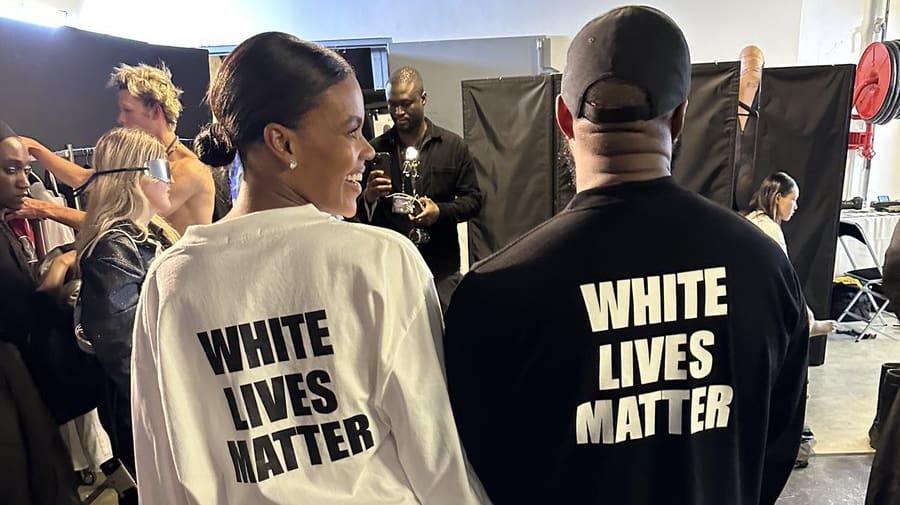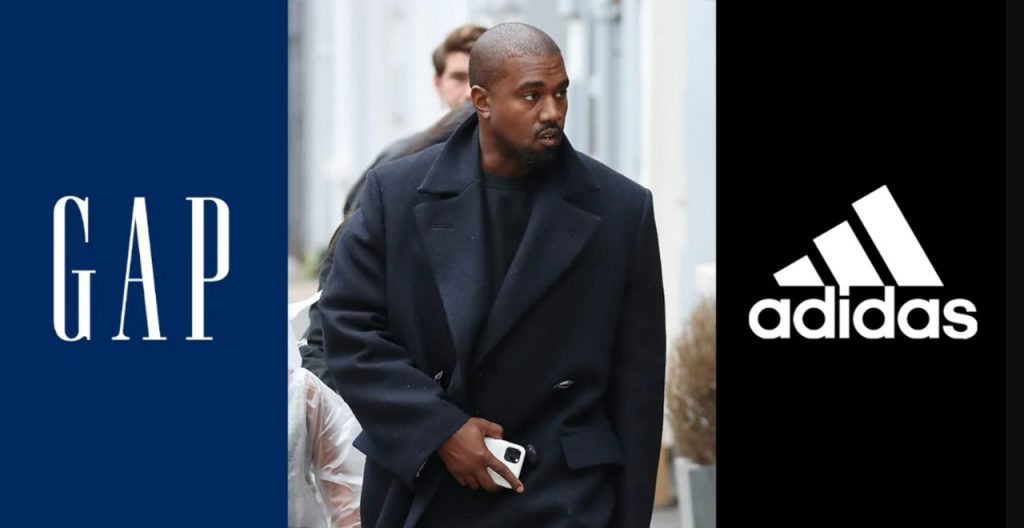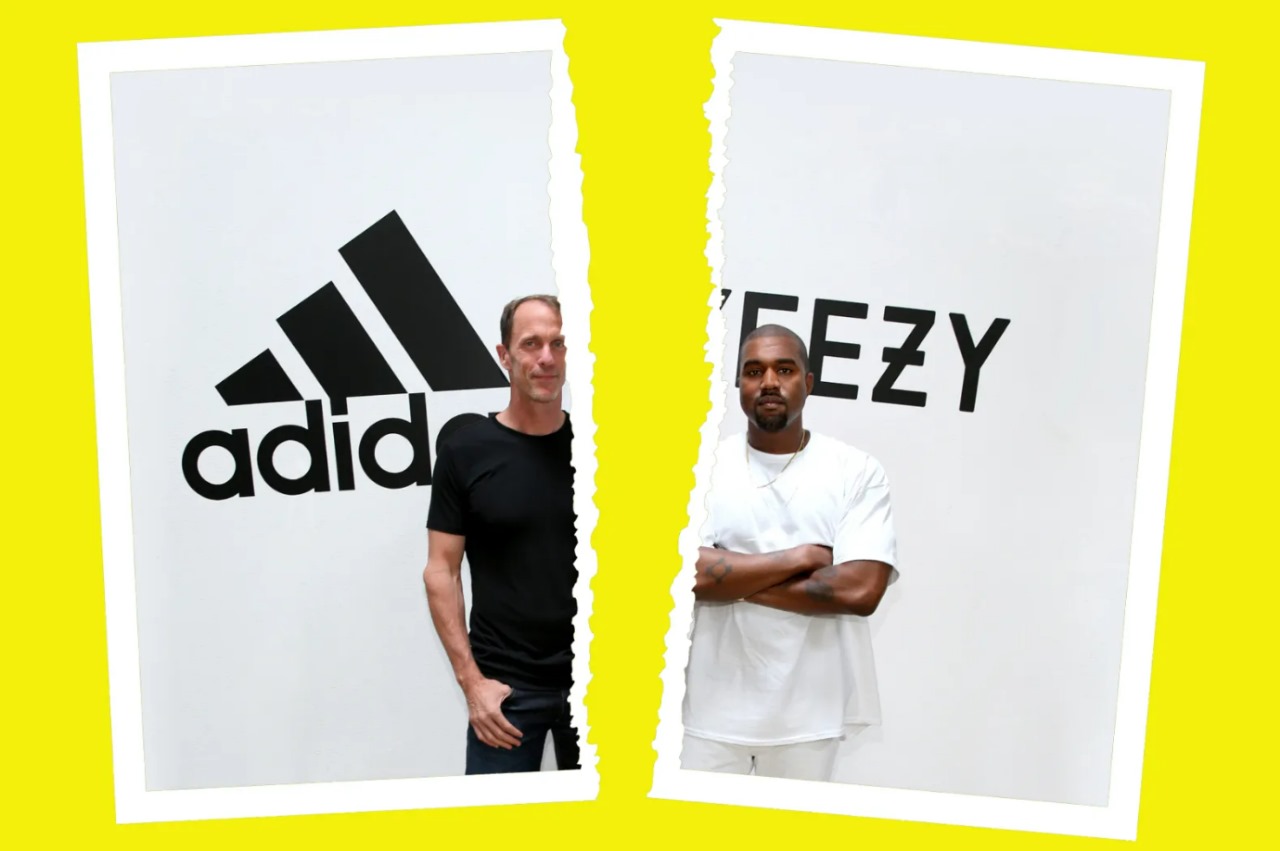Failed celebrity brands are often noted because they failed. Failed to secure customers, failed to get on the shelves, failed at product-market-fit. Whilst the reasoning behind these failures is varied and vast, one often doesn’t consider the failure of a partnership after success.
A situation Adidas currently finds themselves in.

Corporate America Cancels Kanye
In a series of released statements spanning the three weeks that followed Paris Fashion Week on October 3rd 2022 where he wore a “White Lives Matter” t-shirt, all of Kanye West’s lucrative partnerships ended. The first domino to fall was The Gap, which was cut just two years into their ten-year agreement. The lack of immediate follow through by other corporate collaborators spurred the artist on to make even more outrageous comments including West saying, “I can say antisemitic things, and Adidas can’t drop me. Now what?” on ‘Drink Champs’ podcast.
Shortly thereafter Adidas released a statement outlining the partnership would be put in review. During this period Balenciaga, Vogue and CAA dropped the rapper. By October 25th, Ye’s biggest deal finally collapsed when Adidas announced the end of the partnership after mounting pressure from the public and staff.

The announcement sent Ye’s wealth tumbling, with the deal worth $1.5bn.
More craziness ensued including Kanye showing up at the Skechers corporate office in Los Angeles “unannounced and without invitation” the day after being dropped by Adidas to resurrect another shoe partnership. The company confirmed in a statement that the rapper was escorted off the premises by two executives and that it had “no intention” of working with the rapper.
Fast forward one year later
Adidas has announced that it could suffer its first annual operating loss in more than three decades, mostly due to writing off the entire range of Yeezy-branded clothing and sneakers – inventory worth $1.3bn. A partnership which analysts estimate accounted for 8% of annual sales.
Financial fallout has been compounded by Adidas shareholders launching a class-action lawsuit alleging the sportswear brand knew about the potential harm that the personal behaviour of Ye could cause the company, but failed to warn investors. The lawsuit alleges that Adidas’ former chief executive officer, Kasper Rorsted, and chief financial officer, Harm Ohlmeyer, either “intended to deceive” investors or “acted with reckless disregard for the truth” by failing to disclose issues between the company and Ye.
Now what?
Despite the Adidas statement outlining they would stop the Adidas Yeezy business with immediate effect, they have since sold inventory in an effort to reduce losses and “donate money to the organizations that were harmed by what Ye said”.
Surprising still is that the new Adidas CEO Bjørn Gulden recently went on a podcast saying, “I think Kanye West is one of the most creative people in the world, both in music and what I would call street culture. He’s extremely creative. Ye made statements which wasn’t good that caused (Adidas) to break that contract and withdraw the product. Very unfortunate, because I don’t think he meant what he said and I don’t think he’s a bad person, it just came across that way.”
Gulden continues stating of Ye’s remarks “meant we lost that business, one of the most successful collabs in history. Very sad. But again, when you work with third parties that can happen. It’s part of the game. That can happen with an athlete, with an entertainer. It’s part of the business.”
This seems like unnecessary back pedalling and potentially opening up a window of opportunity for the Yeezy brand to continue – even if not with Ye.

